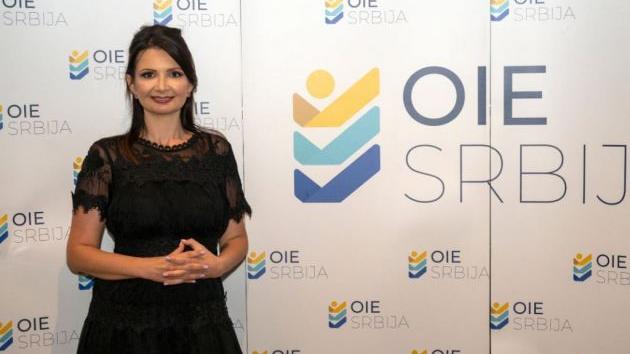World Bank: Serbia Sending Clear Signals That It Is Ready for Green Transition
Source: Beta
 Friday, 12.05.2023.
Friday, 12.05.2023.
 09:29
09:29
 Friday, 12.05.2023.
Friday, 12.05.2023.
 09:29
09:29
Illustration (Photo: xtock/shutterstock.com)

– Despite the challenges of switching to green activities, we know that the continuation of the use of energy from fossil fuels will be increasingly expensive for Serbia – he said at the conference “Strengthening Corporate Governance in Serbia: Sustainability Reporting and the Increasing Role of Audit Committees”, organized by the Center for Financial Reporting Reform (World Bank), within the regional project The Road to Europe: Program of Accounting Reform and Institutional Strengthening for Small and Medium Enterprises in Western Balkans (REPARIS for SMEs), financed by the European Union (EU).
He believes that awareness should be raised about the green transition also being a good opportunity for companies in Serbia to grow and become more competitive in European and global markets.
– The most important question today is the question of climate sustainability, which is why it is necessary for the capital flows to be reoriented to sustainable investments and to manage the financial risks which are a consequence of climate change and the use of resources – Pontara said.
He points out that sustainability reporting will soon be mandatory for big companies in the EU market.
– Companies will have to publish their sustainability strategies, the goals they intend to realize and the progress they realize in the sense of reaching sustainability. And sustainability reporting can also help us understand the financial impact of climate risks – Pontara said.
He emphasizes that it is important for Serbia and its companies to start harmonizing themselves with European regulatory and legal frameworks for sustainability reporting and to make progress regarding the establishment of consistent practices of audit committees.
The head of operation at the II EU Delegation to Serbia, Martin Klaucke, pointed out that the economies of Serbia and the EU were closely connected, which, among other things, meant that European companies which invested in Serbia and used Serbian companies as suppliers needed to monitor whether certain standards, that is, EU directives, were met.
He reminds that, in the past year, 85.7% of the total trade of Serbia was carried out with the EU, of which 64% of the total exports of Serbian companies goes to the EU.
– The goods trade has been constantly growing for several years now and amounts to a total of around EUR 40 billion at the moment – Klaucke said.
He adds that, in the past 12 years, around 60% of the total foreign direct investments in Serbia has come from EU states.
The deputy minister of finance of Serbia, Ognjen Popovic, emphasized that Serbia had been the first country outside the EU and the emerging countries to issue green bonds.
– We are dedicated to the green transition and the country is dedicated to reaching the goal of being carbon-neutral by 2050.
He points out that Serbia closely followed the implementation of the EU Directive on Sustainable Reporting, while at the same time adapting its capital market, which it orients in the direction of the green agenda.
The adviser to the president of the Chamber of Commerce of Serbia (CCIS) for green and circular economy and digital transformation, Radman Selmic, estimated that the WB conference had happened at the right time, because the chamber received inquires about the changes to the EU regulations on a daily basis.
He adds that, two weeks ago, the act on the founding of the Center for Green Economy was signed and that the center was jointly founded by the CCIS and the University of Kragujevac, and that it will provide consulting services in the field of green economy, including green accounting.
– The CCIS has also supported the University of Kragujevac in designing a single-semester program, the first of its kind in Serbia, where students will have the opportunity, for the first time, to learn something about green accounting – Selmic said.
According to the WB, the REPARIS for SMEs program aims to support the facilitation of access to professional accounting and financial management services for small and medium enterprises in the countries of the Western Balkans and the harmonization of the framework for corporate financial reporting in the Western Balkans with the relevant directives and regulations of the EU.
The countries-beneficiaries of the program are Albania, Bosnia and Herzegovina, Kosovo*, Montenegro, North Macedonia and Serbia.
The activities of the program include training, education and technical help and are meant for public officials, regulators, accountants, auditors, professional accounting organizations, organizations for business support and economic chambers.
The main components of the program are providing support in the development and implementation of sustainable education and training programs, providing support to transposing and harmonizing the national legislation frameworks and practices in the field of financial reporting and auditing with the requirements of the EU, inciting a regional approach regarding the implementation of the implemented accounting and auditing reforms.
Also, the program will help implement analyses of accounting and consulting services and reports about the honoring of standards and regulations in the field of accounting and auditing and the implementation of communication plans.
As said, the program enables the members of audit committees and external auditors to consider, through a discussion, potential solutions to overcoming the challenges on the road to improving financial reporting.
This, as explained, could be, for example, the introduction of requests for corporate and financial management in companies of public interest in line with the EU standards.
It is also reminded that the Corporate Sustainability Reporting Directive (CSRD), which came into effect on January 5 this year, brings new, stricter rules about the impact on the society and the environment that companies will be obliged to make public.
The new directive expands the range to all big companies and companies listed on the stock exchange in the EU, with the exception of SMEs until 2028, which will have to implement the mandatory standards of sustainability reporting.
Companies from countries which are not EU members will also be subject to the obligation of corporate sustainability reporting.
This pertains to companies with a net turnover of over EUR 150 million realized in the EU over the past two consecutive business years, which have at least one subsidiary or representation in the EU.
Companies:
 Svetska Banka-WB Beograd
Svetska Banka-WB Beograd
 Delegacija Evropske unije u Republici Srbiji Beograd
Delegacija Evropske unije u Republici Srbiji Beograd
 Ministarstvo finansija Republike Srbije
Ministarstvo finansija Republike Srbije
 Privredna komora Srbije
Privredna komora Srbije
 Univerzitet u Kragujevcu
Univerzitet u Kragujevcu
Tags:
Radman Šelmić
Ognjen Popović
Martin Klaucke
Nicola Pontara
Strengthening Corporate Governance in Serbia Sustainability Reporting and the Increasing Role of Audit Committees
Center for Financial Reporting Reform
REPARIS
Center for Green Economy
Program REPARIS for SMEs
Comments
Your comment
Naš izbor
Most Important News
Full information is available only to commercial users-subscribers and it is necessary to log in.
Follow the news, tenders, grants, legal regulations and reports on our portal.
Registracija na eKapiji vam omogućava pristup potpunim informacijama i dnevnom biltenu
Naš dnevni ekonomski bilten će stizati na vašu mejl adresu krajem svakog radnog dana. Bilteni su personalizovani prema interesovanjima svakog korisnika zasebno,
uz konsultacije sa našim ekspertima.


 Izdanje Srbija
Izdanje Srbija Serbische Ausgabe
Serbische Ausgabe Izdanje BiH
Izdanje BiH Izdanje Crna Gora
Izdanje Crna Gora


 News
News








